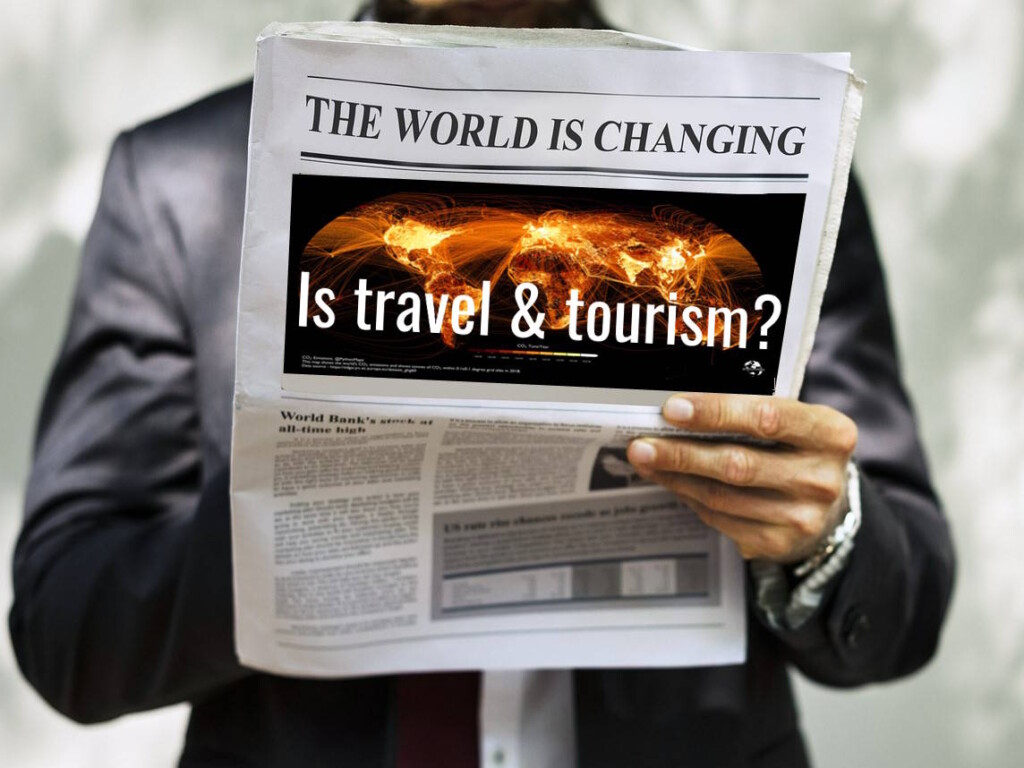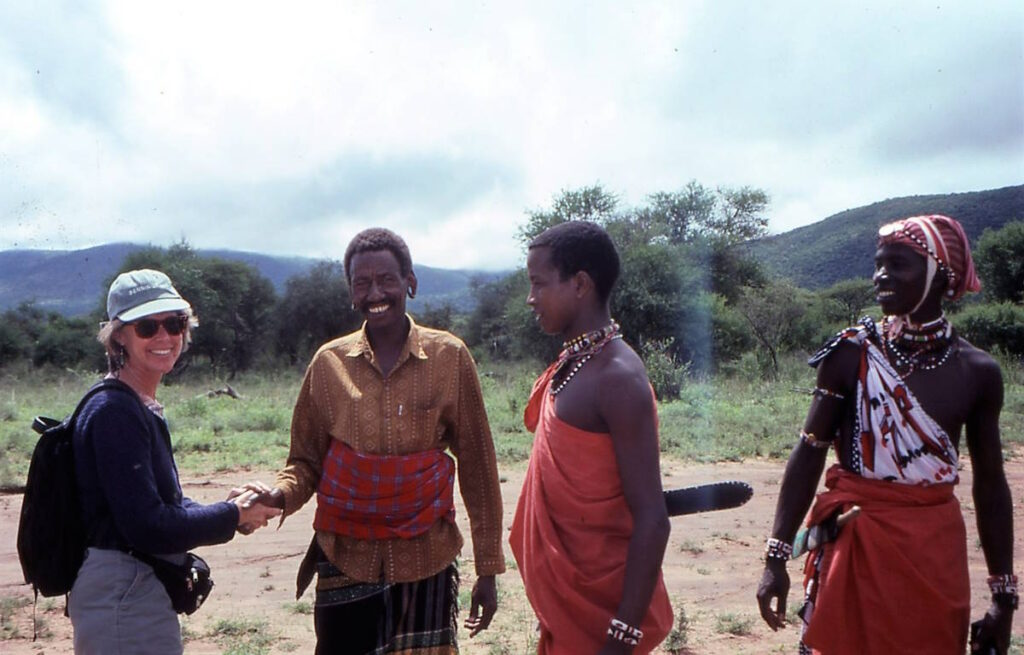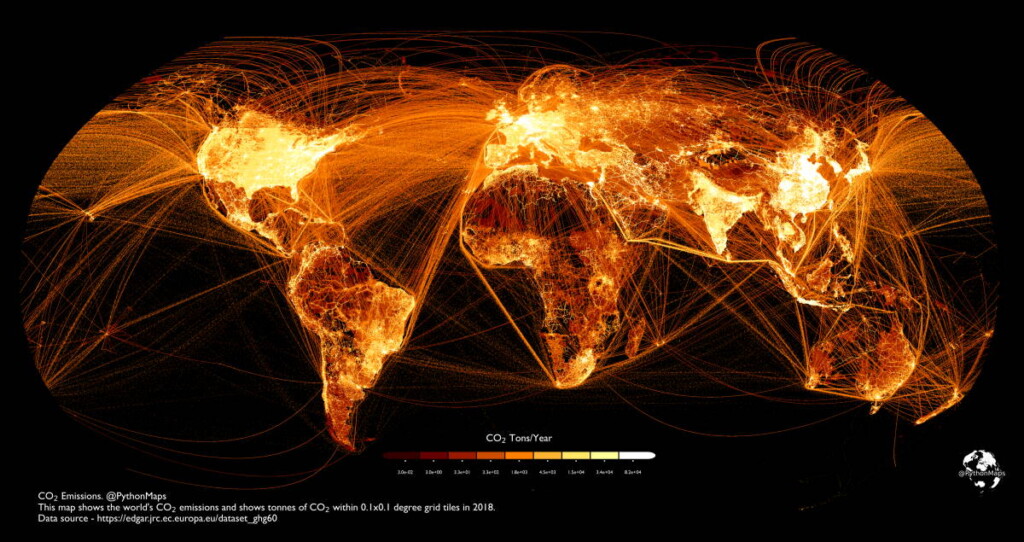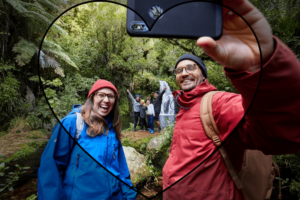How can we change sustainable tourism destination management for good?

To create a more sustainable tourism industry, destination managers need to tackle ‘the invisible burden’ that travellers and their facilitators and service providers impose on people and places.
Megan Epler Wood discusses the energy, intelligence, resources, hope, and education required to transform destination management for the 21st century and beyond.
Planet Happiness invited Ms Epler Wood to share this “Good Tourism” Insight. Planet Happiness is a “GT” Insight Partner. [You too can write a “GT” Insight.]
One of the most distinctive changes in our industrial age has been the transformation of travel & tourism into a global, trillion-dollar industry which transports, accommodates, and organises millions of visitors across hundreds of national boundaries to enjoy the planet’s invaluable cultural and natural attractions.
While once an elite pleasure, travel has become a universal right which brings economic benefits across the world.
However, the tourism industry is hampered by inadequate investment in the competent management of its significant social and environmental impacts.
Don’t miss other “GT” content tagged with
“Travel & tourism destination management”
While travellers are without question of great benefit to the destinations they visit, their unaccounted-for impacts, known as ‘the invisible burden’, are a growing threat to destinations that are without the resources or skills to manage their most precious assets.
What my own experience has shown is that, despite tourism generating excellent foreign exchange and tax revenues, more and more traditional destinations are facing operational deficits that restrict local authorities’ ability to manage the costs.
This problem becomes increasingly grave as tourism destinations expand, frequently with an emphasis on growth and little regulation to constrain it.
Remedies have rarely been implemented, despite this having been explored in our [Travel Foundation, Cornell University Centre for Sustainable Global Enterprise, and EplerWood International] report, Destinations at Risk: The Invisible Burden of Tourism.
Also see Noel Josephides’ 2019 “GT” Insight
“It’s time to address tourism’s invisible burden”
Tackling the invisible burden of tourism
My team at Cornell STAMP (Sustainable Tourism Asset Management Program), part of the Center for Sustainable Global Enterprise at Cornell University’s SC Johnson College of Business, is not only studying how to remedy this problem, we have created a new eight-module course for professionals: Sustainable Tourism Destination Management.
There are many sources of inspiration for this work. Among them is my personal background in ecotourism, which I discuss in my eCornell Keynote presentation “Sustainable Tourism on a Changing Planet: The Challenges of Transformation in a Global Industry”.
I spent a great many days working directly with indigenous and local people on the protection of their heritage, traditions, and biodiverse lands in Ecuador, Peru, Colombia, Panama, India, Kenya, Sierra Leone, and Sri Lanka.

What has always remained clear to me is that small-scale enterprises must connect to larger supply chains to transform regions and benefit the widest number of residents.
If appropriate revenue sharing transpires and is properly accounted for in a transparent way, inclusive economic development can be fostered, and biodiversity and world heritage destination treasures are likely to be preserved for both the benefit of local people and humanity at large.
There are many threats and opportunities here, including our collective thirst for energy, our intelligence and innovative spirit, our need to redirect resources to appropriate objectives, and the imperative to remain hopeful.
Energy
First and foremost, the transportation economy, including aviation, cruises, and cars, account for 25% of total energy consumption; some 90% driven by oil resources.
This illustration gives a remarkable view of how much global aviation is driving excess greenhouse gas (GHG) emissions, which is growing largely without restraint at present:

Very few regions are seeking to lower their incoming flight capacity. This fact needs to be considered and discussed among all those seeking to lower their personal travel impacts. (One way to respond is by checking the GHG emissions of your flight options on Google and other sources and acting upon it.)
Intelligence
As I think about the future, I am an optimist. I believe that we are equipped to deliver change as a species, and that we can achieve this by thinking practically and informing ourselves with objective data and transparent systems for gathering and benchmarking local perspectives.
However, this grand challenge can no longer be overcome incrementally. We need to power forward by using innovative methods to gather information on where the trouble spots lie.
We cannot act together effectively without more digital intelligence that can be shared within regions. This will require increased usage of satellite technology and Geographic Information System (GIS) mapping systems, which have infinite capacity to align data on maps regarding urgent questions of resilience to climate change and land-use that protects biodiversity.

Resources
Some of the financing mechanisms for sustainable destination management are still in formulation, but good solutions for preserving natural capital are underway, such as debt for nature swaps.
The Nature Conservancy has helped to finance the protection of vital coral reefs in the Caribbean and Indian Ocean by refinancing sovereign debt for the purposes of long-lasting investments in natural capital.
Jennifer Morris, who leads the US-based nonprofit, sees a US$10 billion opportunity “right now”. This will bring many dividends for nations seeking to preserve their economies and well-being.
Hope
It is our hope at Cornell STAMP that we can help orchestrate a new kind of destination management architecture with the following features:
- Finance to deliver on the preservation of natural and social capital;
- Local resilience and engagement; and
- Fundamental transformation in local water, waste, and energy infrastructure.
As I write this blog, I am hearing from motivated prospective students of our new Sustainable Tourism Destination Management online course; people from around the world who want to do more for their countries. This is inspiring.
If governments were to devote a percentage of tourism taxes to new, well-trained destination management units, the transition could begin.
Destination management units would not only help preserve vital resources, they would also transform how travel & tourism is managed and begin to eliminate the invisible burden imposed by our industry.
What do you think? Share a short anecdote, comment, or question below. Or write a “GT” Insight of your own. The “Good Tourism” Blog welcomes diversity of opinion and perspective on travel & tourism because travel & tourism is everyone’s business.
“GT” Insight Partner Planet Happiness invited Ms Epler Wood to write this “GT” Insight.
Featured image (top of post): The world is changing. Is travel & tourism? Individual holding newspaper by Gerd Altmann (CC0) via Pixabay. Superimposed as a newspaper image is the aviation emissions image by @PythonMaps which is used in the body of this post. “GT” added the words “Is travel & tourism?”
About the author

Megan Epler Wood is the Managing Director of the Sustainable Tourism Asset Management Program (STAMP) at Cornell University’s Center for Sustainable Global Enterprise at the SC Johnson College of Business. She previously led courses and research at Harvard University from 2010 – 2021.
Ms Epler Wood is the lead lecturer for a comprehensive 40-hour, self-paced Sustainable Tourism Destination Management eCornell course for business leaders, urban planners, sustainable development professionals, destination management organisations, and municipal government employees.
Megan led the research and writing for the ground-breaking 2019 report, Destinations at Risk: The Invisible Burden of Tourism, which “helped redefine how the tourism economy can better meet sustainability requirements on a regional level while covering local costs”. Her 2017 book, Sustainable Tourism on a Finite Planet, reviews the sustainability strategies for each sector of the tourism industry.
As proprietor of the international consulting firm EplerWood International (EWI), Megan “designs value-added sustainable tourism economies”; working with international and regional development agencies, destination management organisations, and development banks since 2003.





